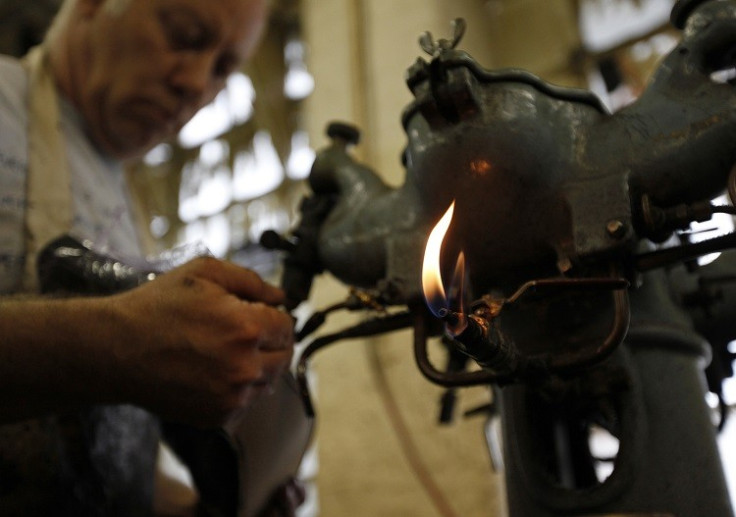UK Manufacturers Borrowing More but Credit Costs Rising

A rising cost of credit may hinder UK manufacturing's robust recovery from the post-financial crisis slump as many more firms look to borrow to boost jobs and output.
Manufacturers' organisation EEF said in its quarterly credit conditions survey that the portion of businesses with no need to borrow fell to 40%, its lowest level since the report was started in 2007. However, the cost of credit rose to a balance of +11%, the highest reading since the end of 2012.
Across 2013, manufacturing firms have seen a turnaround in their fortunes as domestic and external markets begin to recover. EEF's is the latest survey in a long line showing a sustained momentum of growing confidence in the sector, but the good news is caveated by higher finance costs.
"2013 has seen the tide slowly turn and the year has ended with more companies looking to access external finance and a higher balance of companies reporting that it is more readily available," said Lee Hopley, chief economist at EEF.
"But we've not yet reached the point where we can safely say that access to finance challenges are behind us as costs are also on the up."
She added that schemes such as Funding for Lending, designed to reduce the cost of borrowing for SMEs, are "helping to clear some blockages" even if they are not reducing rates.
A separate survey by the Confederation of British Industry (CBI), Britain's biggest business lobbyist, found that optimism among UK manufacturing SMEs rose at its fastest pace since its records began during the three months to October.
The CBI's SME Trends Survey for the British manufacturing sector saw its sentiment index rise to +35% in the quickest increase since 1988 when the report was first compiled.
"This has been a positive quarter for small and medium-sized manufacturers, with new orders and output both on the rise, and further improvements expected next quarter," said Stephen Gifford, the CBI's director of economics, about the survey of 338 firms.
"Optimism about the general business situation has improved and is now at a record high, and there is evidence of a general thaw in investment intentions for the year ahead."
The Markit/CIPS UK manufacturing purchasing managers index (PMI) for October came in at 56.0, down slightly on September's 56.3 but still well in growth territory. Any figure above the neutral 50.0 market represents growth, while below means a contraction. The index is compiled from surveys of private industry purchasing managers.
"Despite only accounting for less than 11% of the economy, the current strength of growth seen in manufacturing means the sector will still provide a major boost to the economy in October, boding well for the strong pace of economic growth we saw in the second and third quarter being sustained into the fourth quarter," said Rob Dobson, senior economist at survey compilers Markit.
The Society of Motor Manufacturers and Traders (SMMT) reported that October saw the largest monthly increase for the whole of 2013 in car manufacturing output.
SMMT figures show car output rising 17.4% in October on the same month a year before, to 160,854 units. Manufacturing for the domestic market jumped 52.4% and export growth lifted 11.4% amid a second consecutive month of rising demand from Europe.
"More than 15 brands build 50-plus models of car across the UK with volume and niche offerings providing a wealth of choice for our home and export markets," said Mike Hawes, SMMT chief executive
"With European demand showing early signs of recovery, we expect production to continue positively in the coming months."
© Copyright IBTimes 2025. All rights reserved.






















